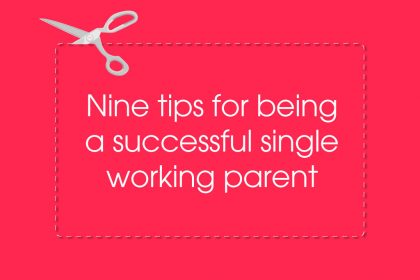How to protect your mental health while going through a messy divorce
Going through a divorce is never easy. Even when things go smoothly, the process of separating can be painful and difficult. But what happens if things go really wrong? What happens when the process of getting a divorce turns messy?
A messy divorce can take a huge toll on your mental health. Not only are you trying to process all the emotions and practicalities involved, but you may find yourself balancing the everyday demands of life, from childcare and work commitments through to paying your bills on time. And sometimes, it can all get a little overwhelming.
In this article, we will be sharing how you can protect your mental health while walking through a messy divorce. We hope our advice provides some comfort that it is possible to take time for yourself and put your needs first during this difficult time.
Find the support you need
Going through a divorce can be an extremely lonely time. However, just because you feel alone doesn’t mean you are. Reach out to family and friends and ask for their support. If you don’t want to talk, you don’t have to. But perhaps you could do with some help with childcare or cooking dinner. We all need support in different ways and it’s important to find the support you need.
Speak to a professional
Speaking of finding support, hiring a lawyer is extremely important when you are walking through a messy divorce. Whether you and your ex-spouse are arguing over child custody or who gets the house, things can get ugly fast.
Family Law disputes are resolved by finding resolutions at the earliest conceivable opportunity, which benefit each person involved. Andrew and Andrew Solicitors advises that the focus must be on ensuring that the parties separate as amicably as possible, despite the causes of the breakdown in their relationship. Prioritising the needs of any children involved, and focussing on their best interests, is a significant factor.
Reaching out to an experienced lawyer really helps take the pressure off. A lawyer can assist with any problems you may be facing and support you during this difficult time. They will lead the process and ensure everything is taken care of in a professional manner and within a timeframe that is acceptable to you. Having a professional there who can guide you through an often complicated process makes all the difference to your divorce proceedings and also to your mental health.
Record the process
One of the most challenging aspects of going through a divorce is how much you think about it. You don’t want to think about it, but somehow it’s all you seem to do. And it goes without saying that dwelling on all the gory details of your divorce won’t be doing your mental health any favours. So, if you want to stop thinking about it so much, we recommend recording the process.
The act of writing stuff down with pen and paper is very therapeutic. According to the University of Rochester Medical Center, when you have a problem and you’re stressed, keeping a journal can help you identify what’s causing that stress or anxiety. Once you’ve identified your stressors, you can work on a plan to resolve the problems and reduce your stress.
Recording the process with pen and paper is a great way to let out all your thoughts and feelings on the subject in a healthy manner. It allows you to express your emotions, write down your fears, and process everything that has happened in a controlled way. It’s therapeutic for your mental health, it helps to get everything off your chest, and it’s a great way to put down things that have been bothering you.
Get regular exercise
Not everyone loves to go running, however going for a daily run, walk, or jog can be a great way to get rid of your stress. Unfortunately, it won’t make the situation any easier, but it will help to calm your emotional response towards it.
Exercise is one of the healthiest habits you can take up and it will do wonders for your mental health. According to the mental health charity Mind, many people find that physical activity helps them maintain positive mental health, either on its own, or in combination with other treatments. Just half an hour of fresh air and exercise per day could help strengthen your mind and improve your mental health and wellbeing.
Don’t be too hard on yourself
It is common for people going through divorce to be extremely hard on themselves. This isn’t healthy. However, when going through a particularly difficult emotional time, it is scarily easy to do. Whether you are struggling with feelings of guilt or shame, or you are finding it unable to process the anger you feel, it’s important not to be too hard on yourself.
Whether you are feeling upset, guilty, ashamed, or embarrassed about the fact your marriage is ending, you shouldn’t let these emotions define you. Be gentle with yourself. Take time out during the day to sit quietly and meditate. Forgive yourself. Give yourself the space you need to heal. Self-care during this time is extremely important and will ensure you protect your mental health by doing the most important thing; prioritising your needs first.
Get professional counselling
Counselling provides a unique and wonderful opportunity to share how you are feeling with a total stranger. You can walk into a neutral environment and be brutally honest about how you are feeling and what you are processing.
Psychotherapist Joshua Miles says that seeing a therapist after a divorce or separation or during the process of ending a relationship, can offer you a safe and non-judgemental space to think at depth about your relationship, discuss the wide range of feelings and emotions you are experiencing, and gain some clarity of thought.
Professional counselling sessions are something we highly recommend if you’re going through a messy divorce. Process your emotions in a safe space and receive professional advice that will help you protect your mental health during this difficult time.
Give yourself time
Going through a messy divorce can be incredibly painful and some people find it takes a long time to fully heal from the experience. So, in addition to all the tips we have shared with you already, we want to assure you that it’s okay to give yourself time.
There is no rulebook that says you must get over your divorce within a certain timeframe. You can take all the time you need. In fact, that’s what you should do to protect your mental health and wellbeing. Be gentle on yourself, take time and space to process, and seek support from those around you. Things will get better soon.
Take care of your mental health during divorce
Divorce can have a significant impact on your mental health, which is why it’s so important you prioritise taking care of it while you walk such a difficult journey.
Your mental health and wellbeing will help you process your divorce in a way that is healthy and empowering for you. Of course, like anything else in life, it takes time and practice, but we hope this article will help you feel more in control of the process and more in control of your mental health.
Photo by Becca Tapert










